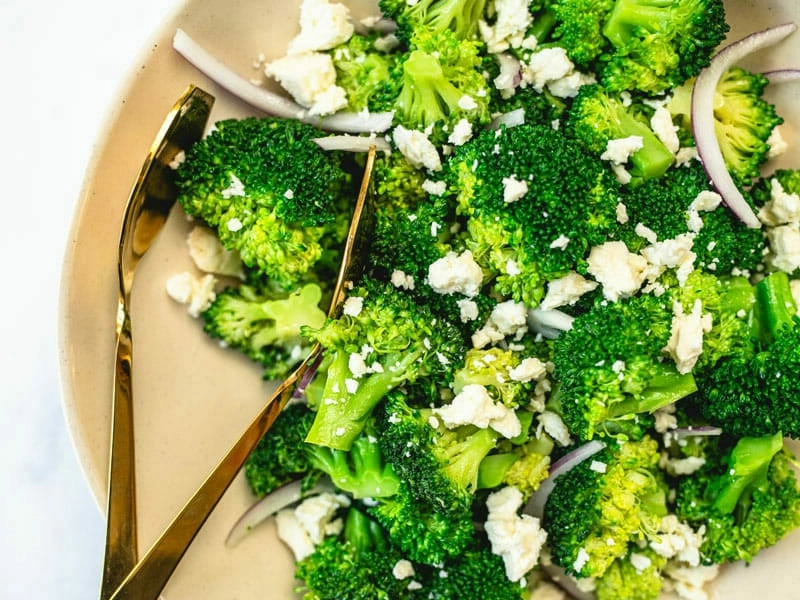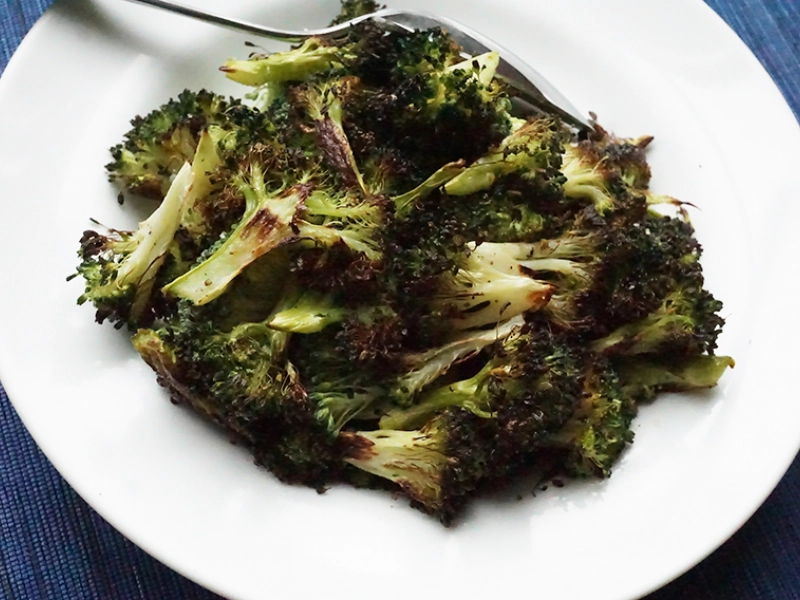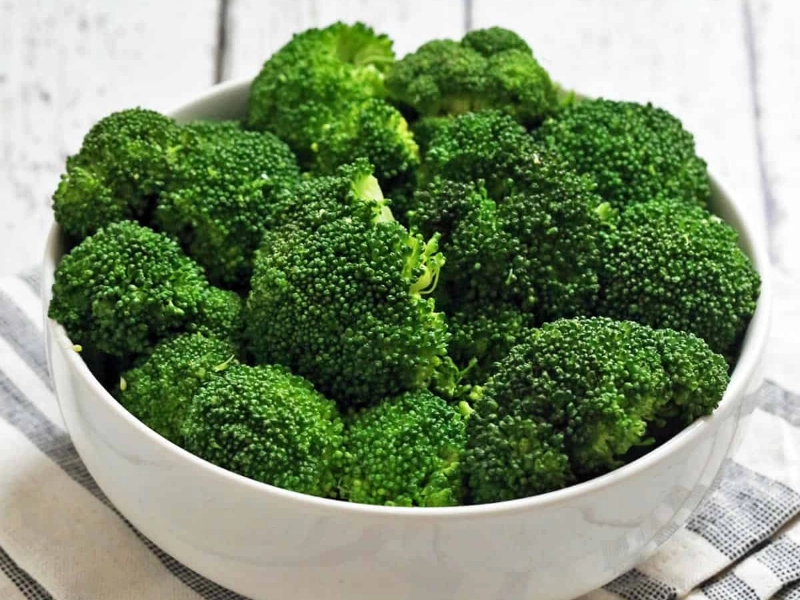With good cause, broccoli is sometimes considered as a superfood. Essential nutrients abound in this cruciferous vegetable, which is quite important for preserving bone integrity. Packed in vitamins, minerals, and antioxidants, broccoli provides a range of advantages that might assist avoid problems connected to bones and support general well-being. The main components in broccoli that support bone health will be discussed in this post together with its function in preventing osteoporosis and useful methods to include this healthy vegetable into your diet.

 Apart from calcium, another vital element included in broccoli that helps bone strength is vitamin K. Bone mineralization, the process by which minerals are deposited into the bone matrix and hence strengthen and denser bones, depends critically on vitamin K. This vitamin ensures that your bones remain strong and healthy by helping proteins that link calcium to the bone to be active.
Deficit in vitamin K could result in weaker bones and higher fracture risk. Fortunately, broccoli is a great source of this vitamin; one cup of cooked broccoli has more than 100% of the advised daily consumption. Regular broccoli intake helps to preserve ideal vitamin K levels, therefore enhancing bone health and lowering the incidence of osteoporosis.
Apart from calcium, another vital element included in broccoli that helps bone strength is vitamin K. Bone mineralization, the process by which minerals are deposited into the bone matrix and hence strengthen and denser bones, depends critically on vitamin K. This vitamin ensures that your bones remain strong and healthy by helping proteins that link calcium to the bone to be active.
Deficit in vitamin K could result in weaker bones and higher fracture risk. Fortunately, broccoli is a great source of this vitamin; one cup of cooked broccoli has more than 100% of the advised daily consumption. Regular broccoli intake helps to preserve ideal vitamin K levels, therefore enhancing bone health and lowering the incidence of osteoporosis.
 Rich in antioxidants, broccoli helps to lower inflammation and preserve bone strength by means of which Strong bones depend on eating foods that fight inflammation as inflammation can cause bone loss and raise osteoporosis risk. Sulforaphane and indole-3-carbinol among other antioxidants in broccoli assist the body neutralize free radicals, therefore lowering oxidative stress and inflammation.
Broccoli is a great way to get these strong antioxidants in your diet. Studies have linked a diet heavy in antioxidants to improved general skeletal health and bone density. Apart from supporting your bones, including broccoli in your diet helps your general health by lowering the chance of inflammatory chronic diseases.
Rich in antioxidants, broccoli helps to lower inflammation and preserve bone strength by means of which Strong bones depend on eating foods that fight inflammation as inflammation can cause bone loss and raise osteoporosis risk. Sulforaphane and indole-3-carbinol among other antioxidants in broccoli assist the body neutralize free radicals, therefore lowering oxidative stress and inflammation.
Broccoli is a great way to get these strong antioxidants in your diet. Studies have linked a diet heavy in antioxidants to improved general skeletal health and bone density. Apart from supporting your bones, including broccoli in your diet helps your general health by lowering the chance of inflammatory chronic diseases.
 The great fiber count of broccoli is yet another important advantage. gut health depends on fiber, which also helps to prevent constipation and keep normal bowel motions. Nutrient absorption—including those required for bone health— depends on a functional digestive system. Your body can better maintain bone strength and density when it effectively absorbs vitamins and minerals.
Furthermore connected to reduced risks of obesity and chronic diseases, which might indirectly affect bone health, are diets high in fibers. Reducing stress on joints and bones requires keeping a good weight. Including broccoli in your meals will boost your fiber intake and supply vital elements that support bone strength, so benefiting your general health.
The great fiber count of broccoli is yet another important advantage. gut health depends on fiber, which also helps to prevent constipation and keep normal bowel motions. Nutrient absorption—including those required for bone health— depends on a functional digestive system. Your body can better maintain bone strength and density when it effectively absorbs vitamins and minerals.
Furthermore connected to reduced risks of obesity and chronic diseases, which might indirectly affect bone health, are diets high in fibers. Reducing stress on joints and bones requires keeping a good weight. Including broccoli in your meals will boost your fiber intake and supply vital elements that support bone strength, so benefiting your general health.
Including broccoli in your everyday diet is simpler than you would believe. This adaptable veggie can be roasted or incorporated into smoothies or cooked and sautéed. Including broccoli in stir-fries—where it complements other vegetables and sources of protein—is one easy approach to get it into your diet. For extra crunch and nutrients, you might sprinkle it into salads. Making a broccoli soup—which combines cooked broccoli with vegetable stock and seasonings to create a creamy and satisfying meal—is another wonderful choice. Raw broccoli florets might be quickly snipped into hummus or yogurt-based dishes. Investigating several cooking techniques and recipes will help you discover fun ways to include broccoli into your diet so you can maximize its many bone-healthy properties.
Weak and brittle bones defined by osteoporosis often cause fractures and other problems. Our bones naturally lose density as we age, hence it is imperative to have eating patterns that support bone health. Along with other foods high in calcium and vitamin K, regular broccoli intake helps preserve bone strength and prevent osteoporosis. Including broccoli as a mainstay of your diet can help you to be proactive in maintaining your bone integrity. Combined with a balanced diet and consistent exercise, broccoli can be quite helpful in lowering the risk of osteoporosis and strengthening your, older skeleton. Giving this nutrient-dense vegetable top priority in your meals will pay off over time for your general quality of life and bone condition.